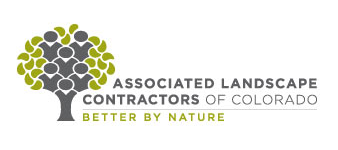| Why the Urban Landscape Conservation Task Force? |
 |
| Written by Colorado Green Now |
| Tuesday, August 08, 2023 12:00 AM |
|
The following is a statement from Kat Weismiller, deputy section chief for Colorado Water Conservation Board’s Water Supply Planning Section. The Urban Landscape Conservation Task Force (CWCB) was created to help the state think about how we, at CWCB, build and support climate-appropriate landscapes. Colorado is getting warmer with projections of up to 4.2oF (2.3oC) warmer by 2050. We live in a semi-arid state and are heavily dependent on annual snowmelt and runoff from the mountains to the plains for our water supply. Colorado averages only 17 inches per year of precipitation with high variability across the state. Climate change is making our water supply more variable, and less dependable and predictable. As a result of climate change and longer term aridification, we are increasingly weighing the value trade-offs regarding water use and how we want to allocate it across competing community needs like economic development, housing, parks, river health, recreation and more. Outdoor water use, including the functionality and aesthetic design of urban landscapes, is at the crux of this discussion. Irrigation of outdoor landscapes accounts for 40-50% of Colorado’s municipal water demand. The 2023 Colorado Water Plan notes the need for “transformative landscape change” – water conscious and attractive urban landscapes that can be sustained on as little as one-day per week watering. Though past water conservation measures have decreased statewide per capita water use by 5% between 2008 and 2015, we have a long way to go to meet the ambitious goals of the Water Plan. Water-wise landscaping and land use practices can play a critical role in providing substantial and permanent water savings while minimizing water waste in Colorado communities. Urban water conservation requires water providers and other groups to work together in ways that extend beyond turf removal to advance the broader concept of landscape transformation to provide lasting water savings, while sustaining healthy communities. The Task Force arose at the direction of the Governor who charged CWCB with facilitating a task force discussion to evaluate the best practices for advancing outdoor water conservation. Recognizing that this topic is critical, and several efforts are currently underway to find policy solutions and best practices for urban landscapes, the Task Force plans to offer leadership and guidance at the state level by exploring where there are both opportunities and challenges for achieving sustained outdoor water savings. The Task Force will look into ways of implementing practical landscaping changes that increase water use efficiency and achieve sustained water savings, while supporting vibrant and beautiful communities. The 21-member task force includes eight water utilities, two water conservation and/or conservancy districts, two environmental nongovernmental organization representatives, and several single seats including a seat dedicated to the landscaping industry filled by ALCC president, John McMahon. McMahon will represent ALCC membership interests in these critical conversations. The team aim plans to meet four times in 2023, aiming to wrap-up provide a set of concepts to be considered by January 2024. Read more in this issue of Colorado Green Now: |



